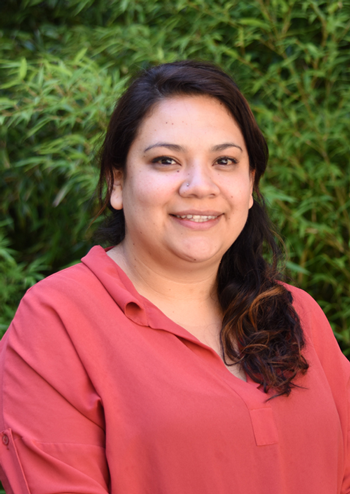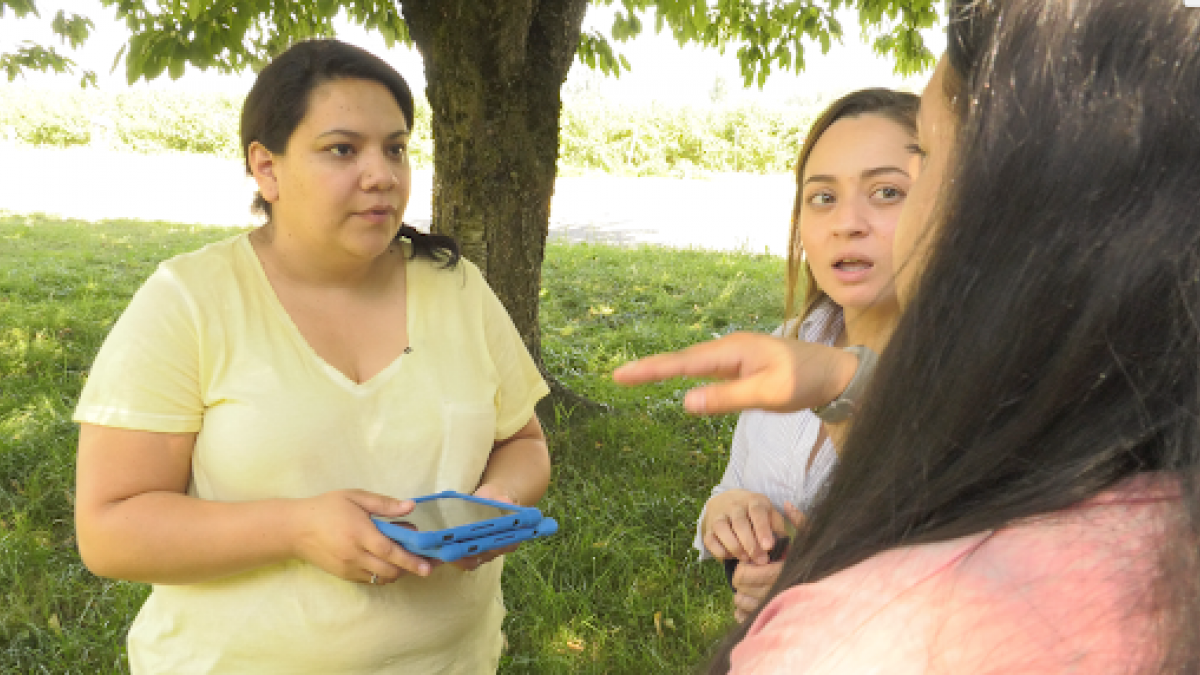Maria Blancas, a UW PhD student and staff member in the UW Department of Environmental & Occupational Health Sciences (DEOHS), will receive the 2019 Bullitt Environmental Prize for her work with immigrant farmworkers in Washington.
Blancas, outreach and education specialist in the Pacific Northwest Agricultural Safety and Health Center (PNASH) at DEOHS, leads a collaboration between UW researchers and farmworkers in Skagit and Whatcom counties to evaluate the cumulative impact of health, social and environmental factors on farmworkers.
The prize is awarded annually by the Bullitt Foundation and comes with $100,000 awarded over two years. Blancas will use these resources to complete her PhD in the UW School of Environmental and Forest Services, creating a digital platform for storytelling about farmworker experiences.
“Agricultural produce touches everyone through the food we eat, yet too often we forget the people working to bring it to our tables,” said Denis Hayes, CEO of the Bullitt Foundation. “Maria’s work gives voice to people who are frequently hidden from view, highlighting impacts to their health and bringing their needs out of the shadows.”
Telling their own stories
The daughter of two immigrant farmworkers in Quincy, Washington, Blancas began working in the fields during high school.
As the first member of her family to graduate from college, she never expected to pursue a PhD. Originally her work focused on global health until an undergraduate professor encouraged her to look at the needs and opportunities in her community.
“I’ve seen how hard people work in the fields and the impact the conditions have on their health,” Blancas said. “Their work feeds us all, but harmful stereotypes devalue the people behind it. I want to use my skills to change the stories we hear about immigrants and farmworkers.”
Tapping into community wisdom
Farmworkers experience significant health disparities and environmental inequalities, including harmful living and working conditions, low wages, exposure to hazardous pesticides and limited access to health care.
The digital storytelling platform will teach farmworkers to use multimedia tools to describe their experiences and concerns, she said.
“Growing up in this community, I know there is a lot of wisdom … and resilience to define their own needs and make decisions about the issues that affect them.”
A supportive academic home in DEOHS
In her role with PNASH, Blancas mentors undergraduate students and provides community engagement support on the center’s dairy worker projects.
In DEOHS, Blancas said she found a supportive academic home where her interdisciplinary approach and community-engaged research is welcomed and supported. Her DEOHS faculty mentors include Associate Professor June Spector and Vanessa Galaviz, affiliate assistant professor.
“It’s such a unique space where we are encouraged to merge our passion and our lived experience, and the department places value in that,” she said.
Building next-generation environmental leaders
The Bullitt Environmental Prize recognizes young people from varied backgrounds who have overcome adversity and demonstrated the ability to become powerful environmental leaders. The goal of the program is to help broaden and diversify the leadership of the global environmental movement.
Past winners of the Bullitt Environmental Prize include another DEOHS graduate, Heather Fowler, who launched a sustainable dairy farming project in Washington.
Blancas is receiving the prize today at an awards banquet. While the Bullitt Foundation recently announced plans to sunset its grantmaking at the end of 2024, it is reserving funds to continue awarding the Bullitt Prize in perpetuity.
Read more about Blancas in this Seattle Times profile.
Watch "Nothing about us without us," our video about Blancas's work with farmworkers in Whatcom County:




